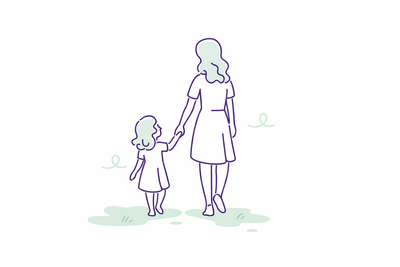
Scenario 1:
Oliver: Emily, stop splashing water on me!
Emily: No!
Oliver: Mom, Emily splashes me with water!
❌ Mom: Emily! Stop doing that! How many times do we need to tell you?
Emily reacts angrily and does it again.
🙁 I created an unnecessary power struggle.
Scenario 2:
Oliver: Emily, stop splashing water on me!
Emily: No!
Oliver: Mom, Emily splashes me with water!
✅ Mom: I'm sure you can solve it yourself. Have you tried to ask him politely?
Oliver: Emily, can you stop squirting me please?
Emily: Ok, Oliver!
🙂 I trusted them and avoided a power struggle.
Why did it work?
👉 Because we have been practicing this way of resolving conflicts for years.
👉 Because I try to intervene as little as possible and not to be a judge, but a mediator.
👉 Because it's fair that Oliver's will is respected, but it's as fair that Emily is spoken to with respect.
This way, I parent:
👌 show trust and respect to my children
👌 teach consent
👌 teach respectful communication
👌 teach conflict resolution
[And I'm not teaching in the way most think parents should teach: I'm not teaching from superiority, but from respect]
And when it doesn't work?
👏 I insist.
👏 I try to be consistent and coherent.
👏 It's a process, I trust the process. I know that if I model respect, consent and trust my children will learn respect, consent and trust. If I criticize, point fingers, scold and decide who is right, my children will do the same.
Ps. It doesn't always go this way but today, after many years of practice, I know that most often than not it'll work this way. It's a process.
































